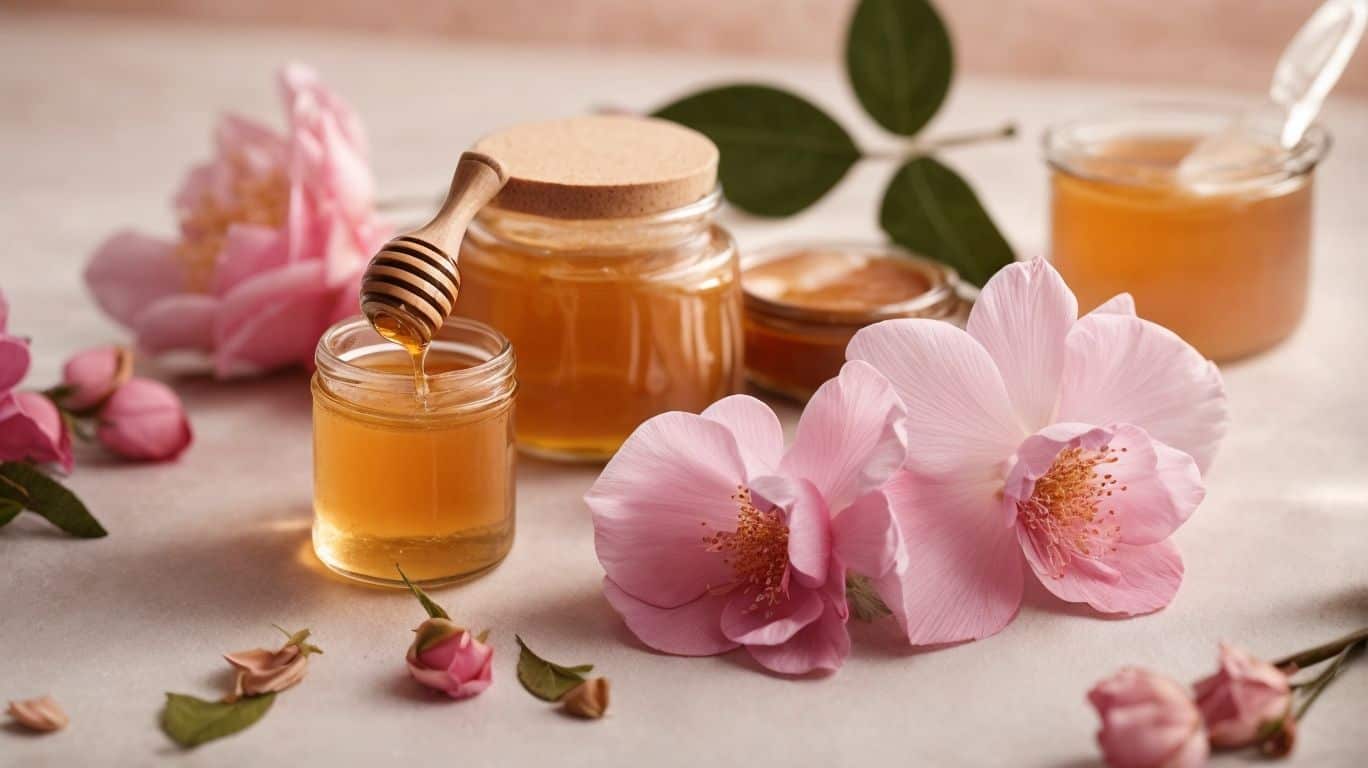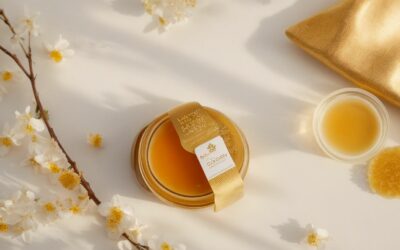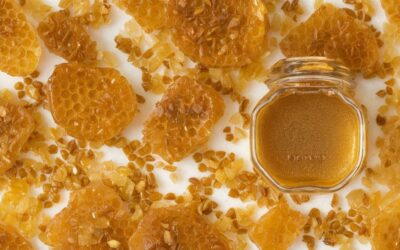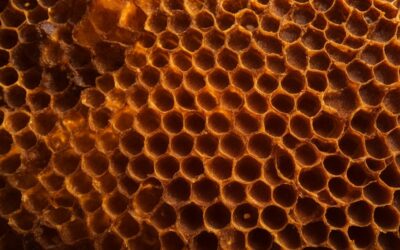Are you constantly looking for natural and effective ways to improve your skin? Look no further! This article will guide you through the process of creating your own Manuka honey and rosewater face mask. Say goodbye to expensive store-bought products and hello to a healthier, more radiant complexion.
What Is Manuka Honey and Rosewater Face Mask?
- What Is Manuka Honey and Rosewater Face Mask?
- What Are The Benefits Of Using Manuka Honey and Rosewater Face Mask?
- How To Make DIY Manuka Honey and Rosewater Face Mask?
- How To Apply The Mask?
- How Often Should The Mask Be Used?
- Are There Any Side Effects Of Using Manuka Honey and Rosewater Face Mask?
- What Precautions Should Be Taken While Using Manuka Honey and Rosewater Face Mask?
- Frequently Asked Questions
A face mask made from Manuka honey and rosewater is a DIY skincare treatment that harnesses the natural benefits of both ingredients to nourish and revitalize the skin. Manuka honey, a special type of honey from New Zealand, is renowned for its antibacterial and healing properties.
Rosewater, a byproduct of distilling rose petals, is known for its calming and moisturizing effects on the skin. Together, these two ingredients create a potent face mask that can enhance the complexion and promote skin health.
What Are The Benefits Of Using Manuka Honey and Rosewater Face Mask?
Are you looking for a natural and effective way to improve your skin’s health and appearance? Look no further than a DIY Manuka Honey and Rosewater Face Mask. This powerful combination offers a variety of benefits that can transform your skin.
From moisturizing and nourishing to fighting acne and reducing inflammation, this face mask has it all. In this section, we will dive into the specific benefits of using this dynamic duo for your skin, including its anti-aging properties. Get ready to achieve a radiant and youthful complexion with this simple and natural face mask.
1. Moisturizes and Nourishes Skin
To effectively moisturize and nourish your skin, try using a Manuka Honey and Rosewater face mask by following these simple steps:
- Begin by cleansing your face with a gentle cleanser and gently patting it dry.
- In a small bowl, combine 1 tablespoon of Manuka Honey and 2 tablespoons of Rosewater.
- Apply the mixture to your face, being careful to avoid the delicate eye area.
- Allow the mask to sit on your face for 15-20 minutes, allowing the nourishing ingredients to deeply penetrate your skin.
- Rinse off the mask with warm water and gently pat your face dry.
- For the finishing touch, apply your favorite moisturizer to lock in hydration and leave your skin feeling refreshed.
Pro-tip: For even more benefits, consider adding a few drops of essential oils such as lavender or tea tree oil to the mixture. These oils have additional skin-nourishing properties and can enhance the effectiveness of the mask.
2. Helps Fight Acne and Blemishes
The Manuka honey and rosewater face mask is effective in fighting acne and blemishes. Here are some steps to incorporate this mask into your skincare routine:
- Cleanse your face with a gentle cleanser.
- In a bowl, mix together 1 tablespoon of Manuka honey and 1 tablespoon of rosewater.
- Apply the mixture evenly to your face, focusing on areas prone to acne and blemishes.
- Leave the mask on for 15-20 minutes to allow the ingredients to work their magic.
- Rinse off the mask with lukewarm water and pat your face dry.
- Follow up with a moisturizer to keep your skin hydrated.
To further combat acne and blemishes, maintain a consistent skincare routine, keep your face clean, and avoid touching or picking at your skin. Remember to consult a dermatologist if you have persistent acne issues. Additionally, this mask can help fight acne and blemishes when used regularly.
3. Reduces Inflammation and Redness
A Manuka Honey and Rosewater Face Mask can effectively reduce inflammation and redness in the skin. Here are the steps to make and apply this mask:
- Mix 1 tablespoon of Manuka honey and 1 tablespoon of rosewater in a bowl.
- Apply the mixture evenly to your face using clean fingertips or a brush.
- Leave the mask on for 15-20 minutes to allow it to work its magic in reducing inflammation and redness.
- Rinse off the mask with lukewarm water and pat your skin dry.
- Follow up with your regular skincare routine to maintain the benefits.
By following these steps, you can enjoy the benefits of reduced inflammation and redness with the Manuka Honey and Rosewater Face Mask.
4. Anti-aging Properties
Using a Manuka honey and rosewater face mask can offer a variety of anti-aging properties for the skin. These include moisturizing and nourishing the skin, combating acne and blemishes, reducing inflammation and redness, and producing anti-aging effects.
To create a DIY mask, you will need ingredients such as Manuka honey and rosewater, which are readily available. Apply the mask onto your face and leave it on for a designated amount of time. It is essential to conduct a patch test before use and avoid contact with the eyes.
Interestingly, Manuka honey has been utilized in traditional medicine for centuries due to its numerous benefits for the skin.
How To Make DIY Manuka Honey and Rosewater Face Mask?
To create your own DIY Manuka Honey and Rosewater Face Mask, simply follow these steps:
- Begin by cleansing your face with a gentle cleanser and then patting it dry.
- In a bowl, combine 1 tablespoon of Manuka honey with 1 tablespoon of rosewater.
- Evenly apply the mixture to your face, being careful to avoid the eye area.
- Allow the mask to work its magic for 15-20 minutes.
- Rinse off the mask with lukewarm water and gently pat your face dry.
- For best results, follow up with your favorite moisturizer to lock in hydration.
- For glowing, hydrated skin, use the mask 1-2 times a week.
What Are The Ingredients Needed?
To create a DIY Manuka Honey and Rosewater Face Mask, you will require the following ingredients:
- Manuka honey: Renowned for its antibacterial and healing properties.
- Rosewater: Helps to moisturize and calm the skin.
- Lemon juice: Acts as a natural exfoliant and brightens the skin.
- Yogurt: Provides gentle exfoliation and hydration to the skin.
- Turmeric powder: Possesses anti-inflammatory and antioxidant benefits.
These ingredients collaborate to produce a nourishing and revitalizing face mask that can enhance the overall appearance and wellness of your skin.
What Are The Steps To Make The Mask?
- Gather all the ingredients for the DIY Manuka Honey and Rosewater Face Mask:
- 2 tablespoons of Manuka honey
- 2 tablespoons of rosewater
- 1 tablespoon of natural yogurt
- 1 teaspoon of almond oil
- Mix all the ingredients together in a mixing bowl.
- Thoroughly stir the mixture until it becomes a smooth paste.
- Evenly apply the mask to your face using clean fingertips or a brush.
- Leave the mask on for approximately 15-20 minutes to allow the ingredients to work their magic.
- Rinse off the mask with lukewarm water and gently pat your face dry with a clean towel.
- Follow up with your regular skincare routine.
Fun Fact: Manuka honey, known for its antibacterial properties, is produced by bees that pollinate the Manuka bush in New Zealand.
How To Apply The Mask?
Applying the Manuka honey and rosewater face mask is a simple process that can be done in a few easy steps:
- Start with a clean face, ensuring that all makeup and impurities are removed.
- In a small bowl, mix together one tablespoon of Manuka honey and one tablespoon of rosewater.
- Using clean fingertips or a brush, apply the mask evenly to your face, avoiding the eye and mouth area.
- Leave the mask on for 15-20 minutes to allow the ingredients to work their magic.
- Rinse off the mask with lukewarm water and pat your face dry with a clean towel.
- Finish by applying your favorite moisturizer to keep your skin hydrated and nourished.
By following these steps, you can easily learn how to apply the Manuka honey and rosewater face mask and enjoy the benefits it offers to your skin.
How Often Should The Mask Be Used?
The frequency of using a DIY Manuka Honey and Rosewater Face Mask depends on your skin type and needs. Generally, it is recommended to use the mask 1-2 times a week to achieve optimal results.
- Cleanse your face before applying the mask to remove any dirt or makeup.
- Mix equal parts of Manuka honey and rosewater in a bowl.
- Apply the mixture evenly to your face, avoiding the eye area.
- Leave the mask on for 15-20 minutes.
- Rinse off the mask with warm water and pat your face dry.
- Apply your regular moisturizer to lock in hydration.
Fact: Manuka honey is known for its antibacterial properties and can help soothe and hydrate the skin.
Are There Any Side Effects Of Using Manuka Honey and Rosewater Face Mask?
While the DIY Manuka Honey and Rosewater Face Mask has gained popularity for its numerous benefits, it is important also to consider any potential side effects. In this section, we will discuss the possible risks and reactions that may occur when using this mask. From allergic reactions to skin irritation, we will examine the potential side effects of incorporating this natural face mask into your skincare routine.
1. Allergic Reactions
Allergic reactions to a Manuka honey and rosewater face mask can occur, but they are rare. It is important to patch test the mask before use to check for any adverse reactions. Follow these steps:
- Apply a small amount of the mask to a small skin area, such as the inner forearm.
- Leave it on for 24 hours and check for any signs of irritation, redness, or swelling.
- If no reaction occurs, the mask can be safely used on the face.
To further minimize the risk of allergic reactions:
- Use high-quality, organic ingredients.
- Avoid contact with the eyes.
By taking these precautions, you can safely enjoy the benefits of a Manuka honey and rosewater face mask without worrying about potential allergic reactions.
2. Skin Irritation
Skin irritation is a possible side effect of using a Manuka honey and rosewater face mask. To reduce the risk of skin irritation, it is important to take these precautions:
- Do a patch test before applying the mask to your face.
- Choose high-quality ingredients to ensure purity and minimize potential irritants.
- Avoid getting the mask in contact with your eyes to prevent irritation or discomfort.
Fact: Did you know that Manuka honey has natural antibacterial properties, making it beneficial for skincare routines?
What Precautions Should Be Taken While Using Manuka Honey and Rosewater Face Mask?
Before you dive into making your own Manuka honey and rosewater face mask, it is important to understand the precautions that should be taken while using this natural skincare treatment.
By following these simple steps, you can ensure a safe and effective experience. First, we will discuss the importance of conducting a patch test before use to avoid any potential allergic reactions.
Then, we will emphasize the importance of using high quality ingredients for maximum benefits. Lastly, we will touch upon the importance of avoiding contact with the eyes during application.
1. Patch Test Before Use
Before using a Manuka honey and rosewater face mask, it is crucial to perform a patch test to prevent any adverse reactions. Follow these steps:
- Choose a small area on your inner arm or behind your ear for the patch test.
- Apply a small amount of the face mask mixture to the chosen area.
- Leave it on for 24 hours and avoid washing or touching the area.
- Monitor the area for any signs of redness, irritation, or itching.
- If there are no negative reactions, the mask is safe to use on your face.
A cautionary tale from a friend who skipped the patch test and experienced a severe allergic reaction serves as a reminder of its importance.
They suffered from redness and swelling, and had to seek medical attention. Don’t underestimate the importance of a patch test!
2. Use High Quality Ingredients
Using only the best ingredients is essential when creating a DIY Manuka Honey and Rosewater face mask. To ensure you are using top-quality ingredients, follow these steps:
- Choose organic or raw Manuka honey to ensure it retains all of its natural properties.
- When selecting rosewater, opt for a high-quality brand that uses pure rose petals and does not contain any artificial additives.
- Consider using filtered or purified water to make the rosewater, ensuring it is free from impurities.
- Store the mask in a clean and sterilized container to prevent contamination.
By using high-quality ingredients, you can fully maximize the benefits and effectiveness of your Manuka Honey and Rosewater face mask, promoting healthy and radiant skin.
Be sure to research reputable sources and brands for your ingredients.
3. Avoid Contact With Eyes
When using a Manuka Honey and Rosewater face mask, it is important to avoid contact with the eyes to prevent any irritation or discomfort. Here are some steps to follow:
- Gently cleanse your face and pat it dry.
- Mix equal parts of Manuka Honey and Rosewater in a bowl.
- Apply the mask to your face, excluding the eye area.
- Leave it on for 15-20 minutes.
- Rinse off the mask with warm water, avoiding the area around your eyes.
- Follow up with your regular skincare routine.
By taking this precaution, you can enjoy the benefits of the mask without any harm to your eyes.
Frequently Asked Questions
What are the benefits of using a DIY Manuka Honey and Rosewater Face Mask?
The combination of manuka honey and rosewater in a DIY face mask can provide numerous benefits for your skin. Manuka honey is known for its antibacterial and anti-inflammatory properties, making it effective in treating acne and reducing redness.
Rosewater is known for its hydrating and calming properties, making it ideal for soothing dry and irritated skin. Together, these ingredients can help improve the overall appearance and health of your skin.
How do I make a DIY Manuka Honey and Rosewater Face Mask?
To make a DIY Manuka Honey and Rosewater Face Mask, mix together 1 tablespoon of manuka honey and 1 tablespoon of rosewater in a small bowl.
Apply the mask to your face using clean fingers or a brush, avoiding the eye area. Leave the mask on for 15-20 minutes before rinsing off with warm water. Pat your face dry and follow with your regular skincare routine.
Can I use any type of honey for this face mask?
While manuka honey is the preferred type of honey for this DIY face mask, you can use any raw, pure honey as a substitute.
However, keep in mind that the benefits may not be as potent as using manuka honey. It is important to use a high-quality honey for best results.
How often should I use a DIY Manuka Honey and Rosewater Face Mask?
This face mask can be used 1-2 times a week, depending on your skin type and needs. If you have sensitive or dry skin, it is recommended to use it once a week. If you have oily or acne-prone skin, you can use it up to 2 times a week to help control oil production and reduce breakouts.
Are there any potential side effects of using this face mask?
In general, this DIY Manuka Honey and Rosewater Face Mask is safe for most skin types. However, if you have a known allergy to honey or rosewater, it is best to avoid using this mask. Additionally, always patch test the mask on a small area of your skin before using it on your entire face to check for any adverse reactions.
Is there a specific type of rosewater I should use for this face mask?
It is recommended to use pure, organic rosewater for this DIY face mask. Avoid using rosewater with added chemicals or fragrances, as they may irritate your skin. You can also make your own rosewater at home by simmering rose petals in water and straining the liquid.
I’m a Manuka honey enthusiast and creator of Manuka Honey Organic, a blog where I share my journey with authentic Manuka honey from New Zealand. I want everyone to learn about the healing powers of Manuka honey.





